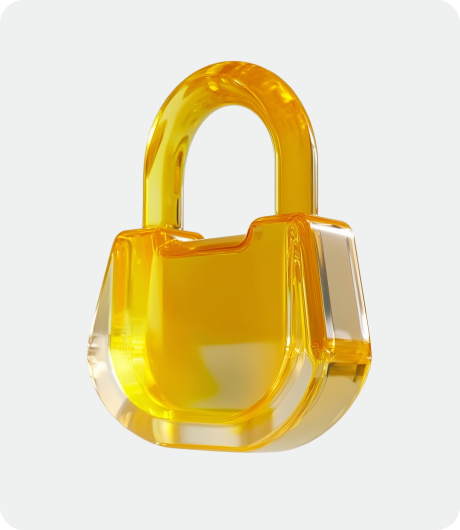Avoid crypto scams
by protecting your
digital assets
Whether you are new to crypto or an experienced investor, our goal is to
equip you with the knowledge you need to recognize, report, and avoid
scams.
Top Tips for Avoiding
Cryptocurrency Scams

Use Two-Factor Authentication (2FA):
Add an extra layer of protection to your accounts by enabling 2FA. It’s a simple step that can make a big difference.

Keep your private keys private:
Never share your private keys or recovery phrases. Not with friends, not with support staff-no one should ever ask for them.

Double-check URLs:
Before logging into any crypto site, take a second to verify the URL. Look for the correct web address and make sure it’s secure with HTTPS.

Stay alert to phishing scams:
Watch out for emails or messages asking for your login details or personal information. If something feels off, trust your instincts and don’t click.

Stick to reputable exchanges and wallets:
Only use well-established and trusted platforms to store and trade your cryptocurrencies.

Don't fall for "Too Good to Be True" offers:
Be wary of investments promising huge returns with no risk. If it sounds too good to be true, it probably is.

Keep an eye on your accounts:
Regularly check your crypto accounts for any suspicious activity. It’s better to catch it early.

Keep your software updated:
Make sure your devices and crypto software are always running the latest updates to protect against security vulnerabilities.

Stay informed:
Knowledge is your best defense. Keep learning about the latest scams and how to spot them.

Report suspicious activity:
If something doesn’t seem right, don’t wait-report it to the authorities or the platform immediately.






Get help wherever you are
No matter where you are in the world, getting the right support after a crypto scam is crucial. Find local resources, legal guidance, and reporting tools specific to your country, so you can take the next steps with confidence.
FAQs
Here are some common questions about crypto scams and resources available for victims.
What are the best practices to avoid cryptocurrency scams?
Always research platforms before investing, verifying their legitimacy and team credibility. Use secure wallets with two-factor authentication and avoid sharing private keys or recovery phrases. Be cautious of unsolicited messages or offers promising guaranteed returns. Stick to reputable exchanges and double-check URLs to avoid phishing sites.
How can I protect my digital wallet from hackers?
Use hardware wallets or reputable software wallets with robust encryption. Enable two-factor authentication (2FA) and keep your wallet recovery phrase offline. Regularly update wallet software and avoid accessing accounts on public Wi-Fi networks. Use strong, unique passwords and consider a password manager for added security.
What are the most common cryptocurrency scams to watch out for?
Common scams include phishing attacks, Ponzi schemes, fake investment opportunities, and airdrop scams. Look out for offers with guaranteed returns, fake social media accounts impersonating legitimate companies, and unverified platforms asking for wallet access.
How do I identify a fake cryptocurrency platform?
Fake platforms often use unprofessional websites, make unrealistic promises, and lack credible reviews. Check the URL for misspellings or inconsistencies and search for reviews on trusted forums. Verify if the platform is regulated or recognized by reputable crypto communities.
Why is using two-factor authentication (2FA) important for crypto security?
2FA adds a layer of protection to your accounts, requiring a second verification step beyond your password. It helps prevent unauthorized access even if your password is compromised. For enhanced security, use authenticator apps like Google Authenticator instead of SMS-based 2FA.